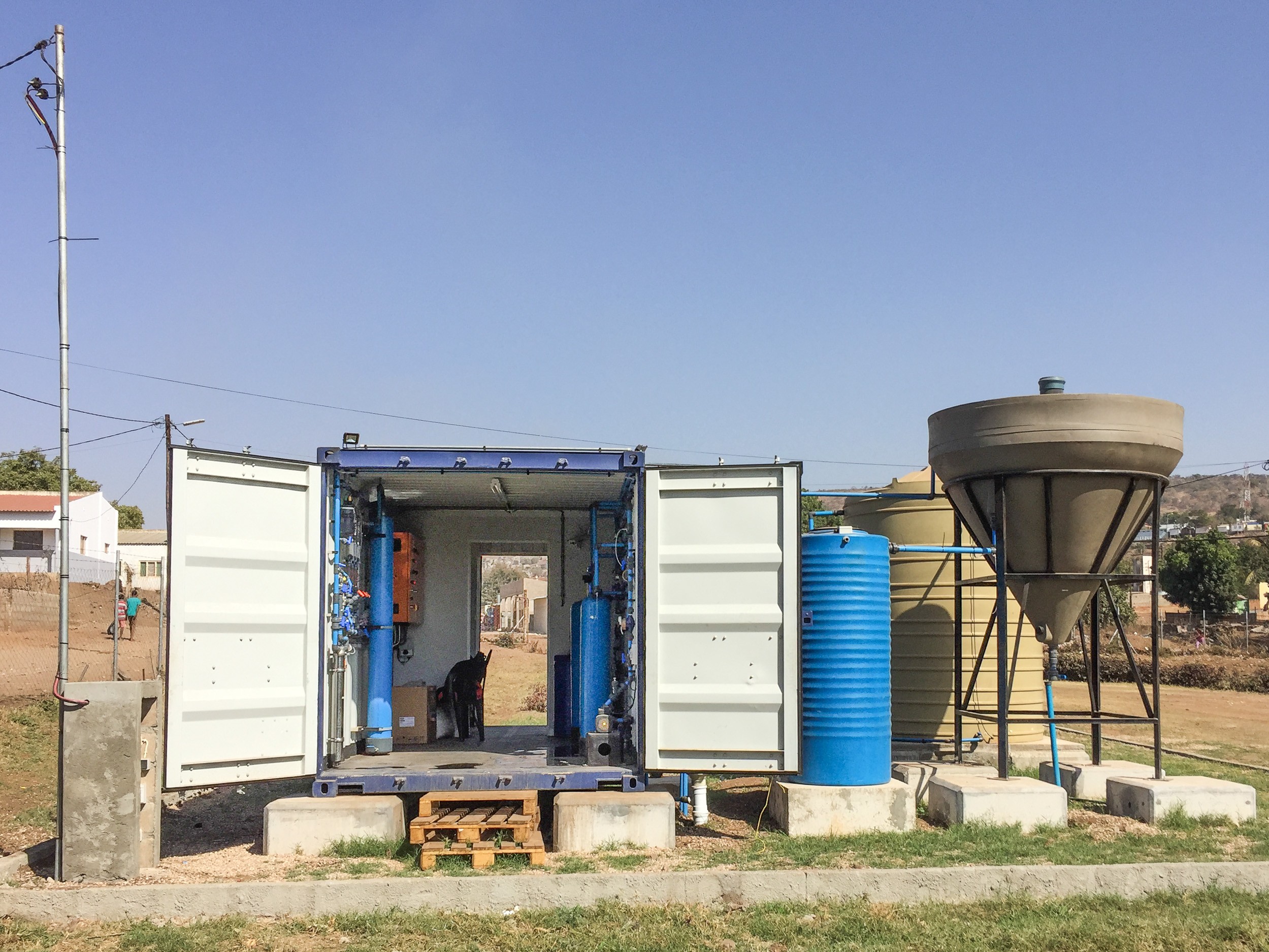Water Purification for Rural Areas - Workshop at the SafeWaterAfrica Mozambique Demonstrator Plant

The aim is to research and develop an autonomous and decentralized "Made in Africa" water treatment system for rural and periurban areas which is highly efficient in the degradation of harmful pollutants, at the same time very effective in killing microbiological contaminants and which is accepted by the members of rural communities. The system will be designed to provide 300 people in rural areas with safe water. The project includes capacity building and business development so that system ownership and responsibility are in the hands of the local rural communities. The joint European-African development will result in a low-cost solution easy to handle and operate. It will take into account the specific cultural aspects of the region and will be designed for operation with local staff and in the responsibility of local communities or local water service providers, respectively.
The purification system will include the adapted European carbon-based electrochemical oxidation ("CabECO") technology which is based on an energy efficient highly effective electrochemical oxidation of critical substances and microbial pollutants and applies a new type of metal electrodes which are coated with carbon based film. In addition the whole water purification system will contain the following additional technologies, developed by the consortium members:
- Electrocoagulation and electrodialysis for inorganic substances (Spain)
- Water quality management system (WQMS) for remote water quality control (South Africa)
- Remote system monitoring and quality control (South Africa)
- Solar energy supply (South Africa)
The carbon-based electrochemical oxidation technology, acronymed by the Fraunhofer IST as "CabECO", excels as it does not need additional chemicals to efficiently degrade persistent organic pollutants and to kill microbiological contaminants. In addition, the energy required for operation of the whole system solution needs only low direct current (DC) voltages and will be provided by photovoltaic modules to achieve a high degree of autonomy.
The project runs from 1.6.2016 until 30.11.2019. Two demonstrator purification units have been developed and set-up during the project in rural areas: one in South Africa (Waterval) and one in Mozambique (Ressano Garcia). They take water from Klip River and Inkomati River, respectively, and have shown to be able to make a purification according to WHO and the South African SANS 241 standards. The demonstrator in Waterval, South Africa is equipped with solar panels and battery for off-grid operation and has already proven 24 hours operation. Sensors, cameras and automatic notifications to a call center enables a remote monitoring and efficient operation and maintenance. We are now in the process to plan follow-up activities and to develop business plans to bring the technology into real use.
The workshop will be from 8:00 until 17:00. Please register your participation until 10.10.2019 by contacting the phone mentioned below. You will also get assistance if you need travel details or accommodation.
See a separate Cordis article for the second public workshop in Irene, South Africa, at 5.11.2019.


